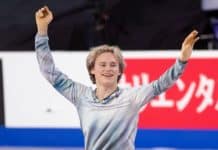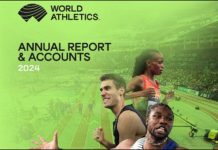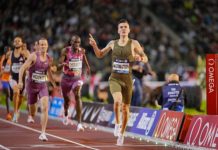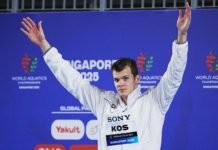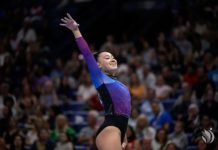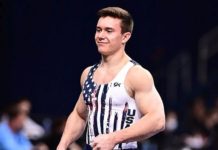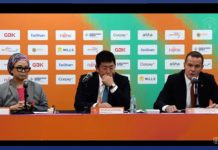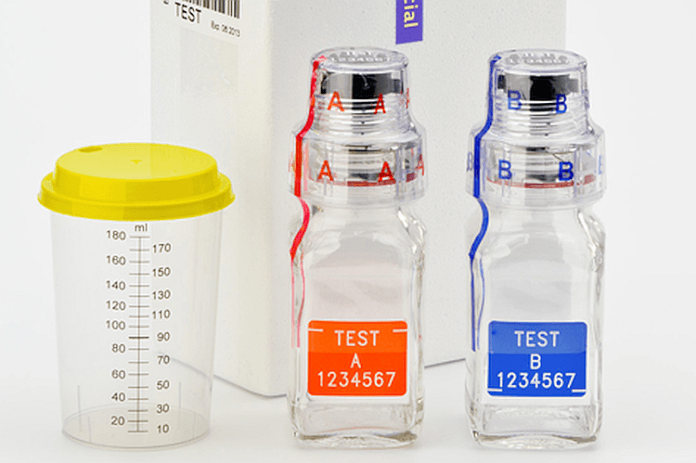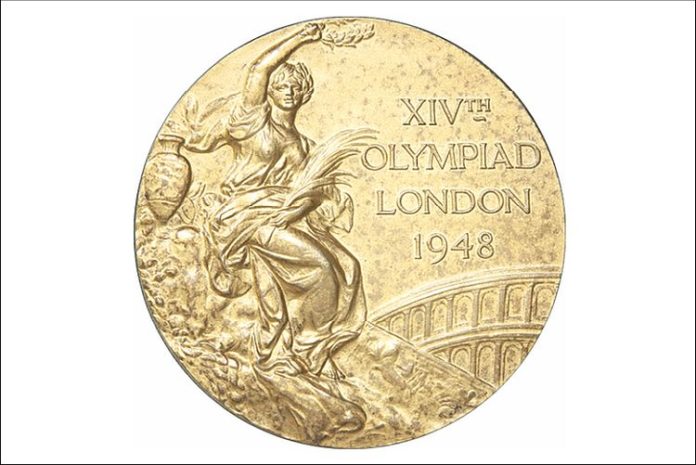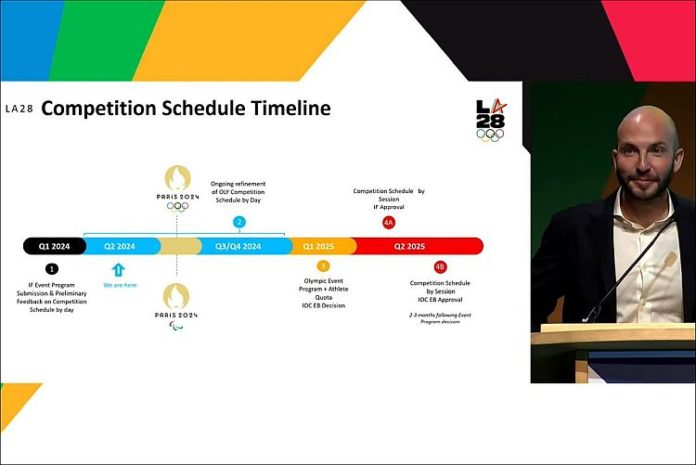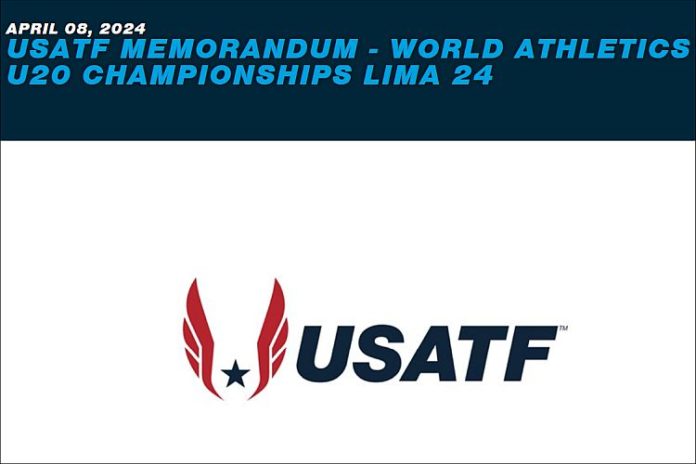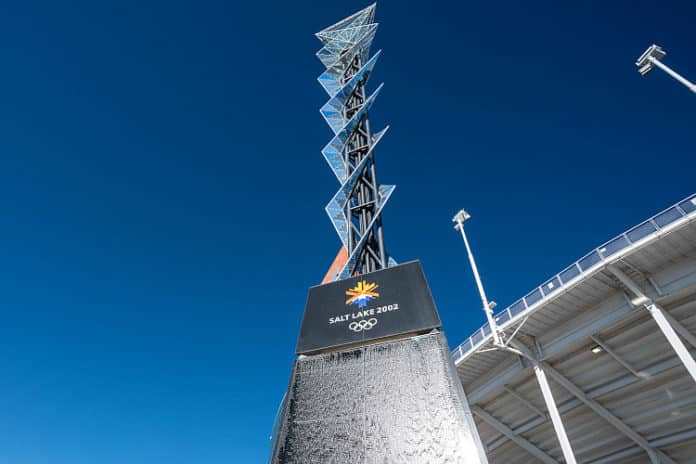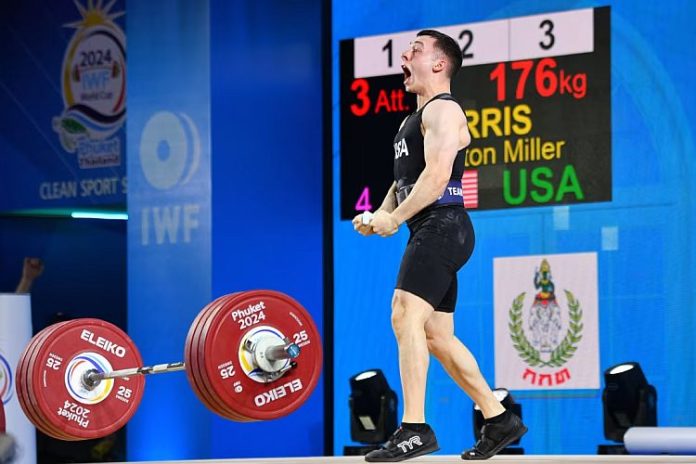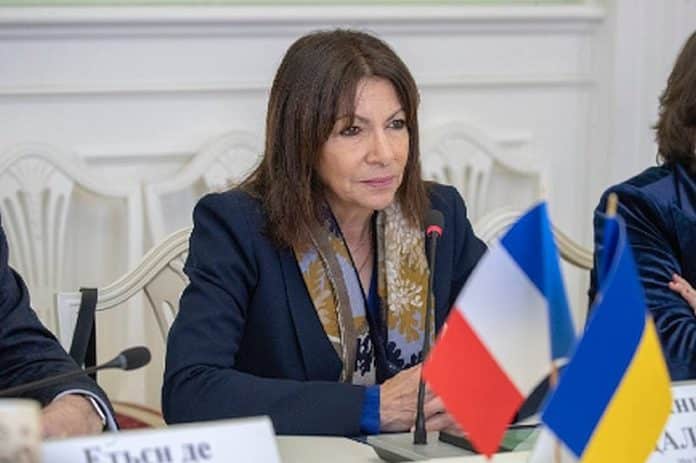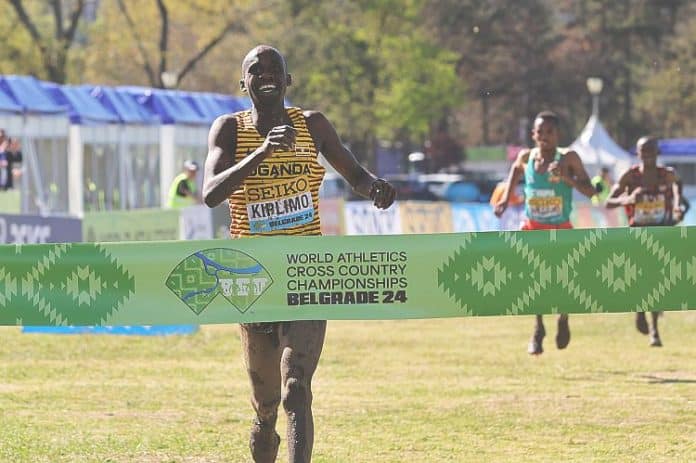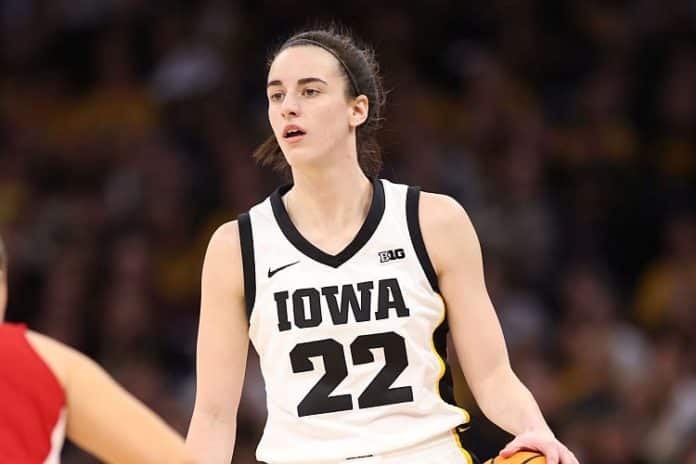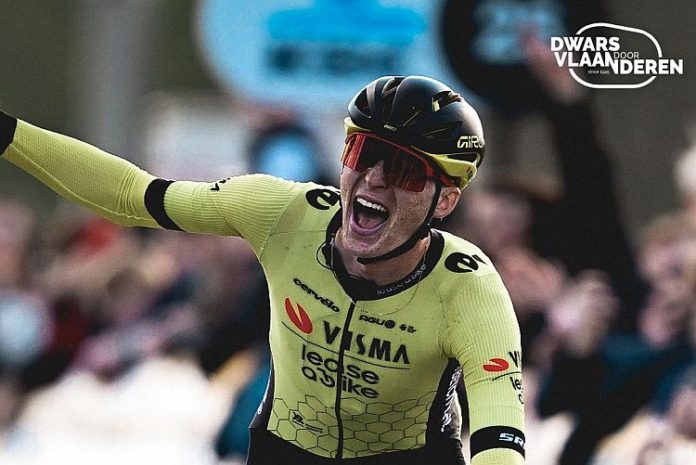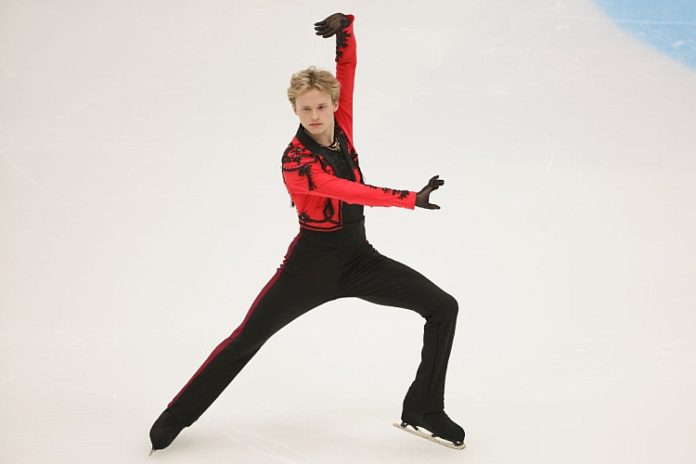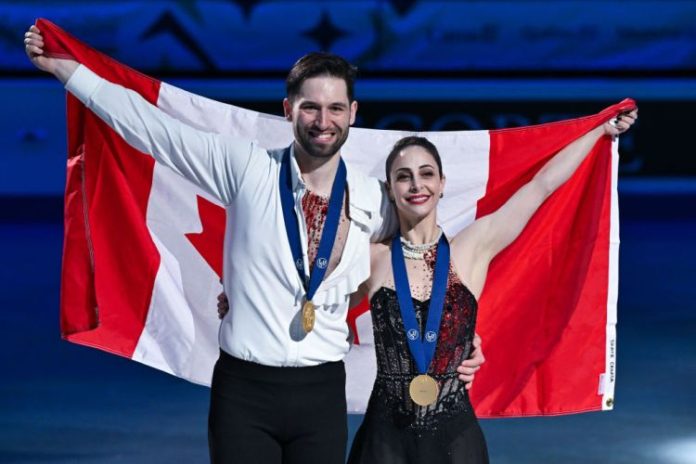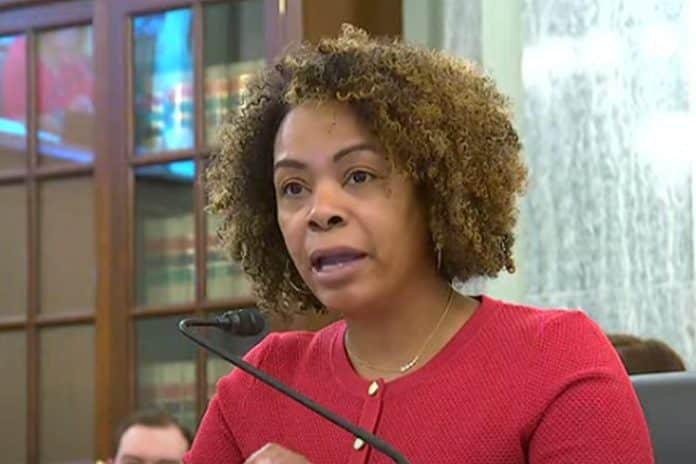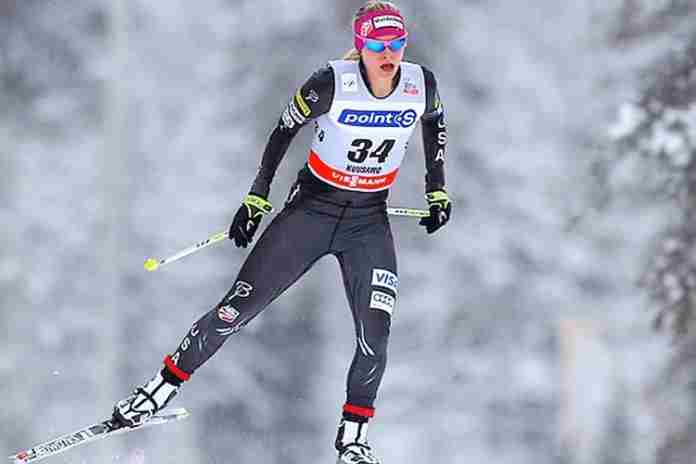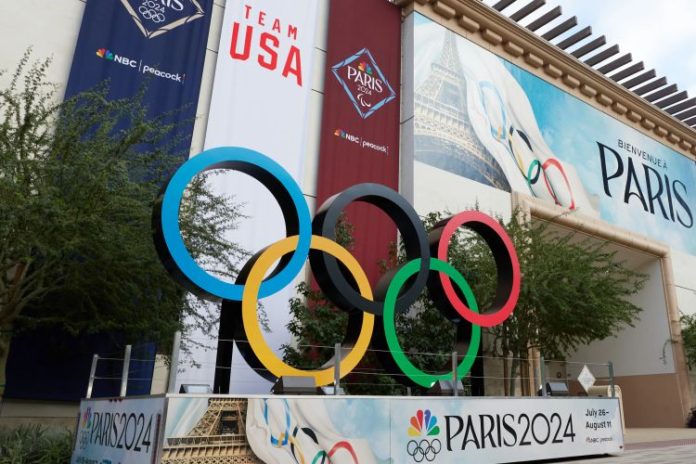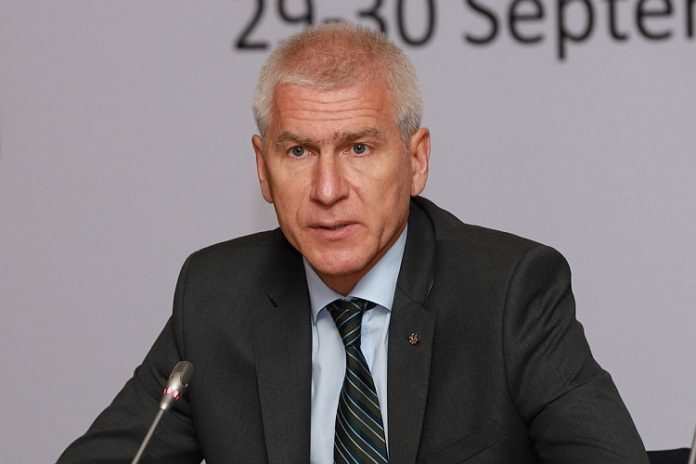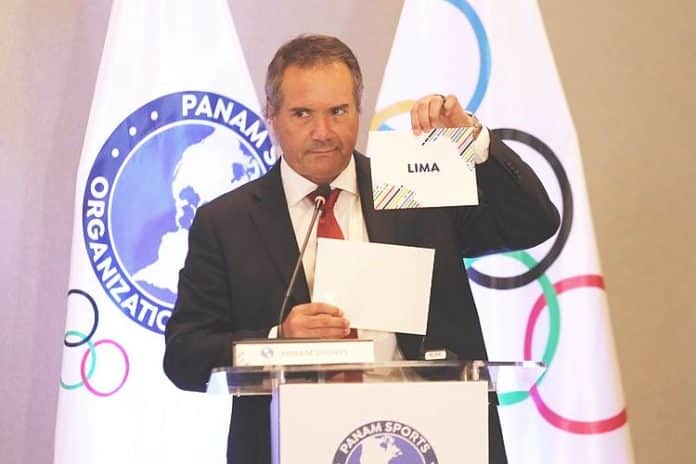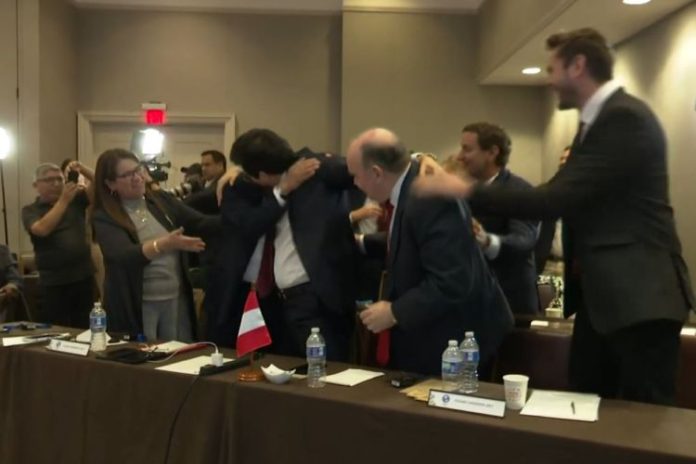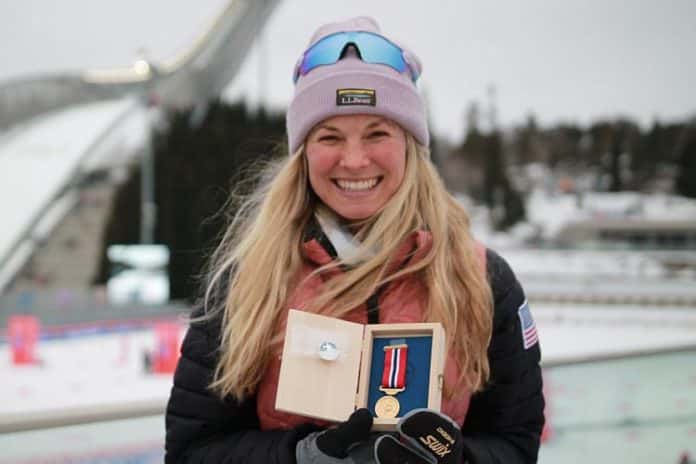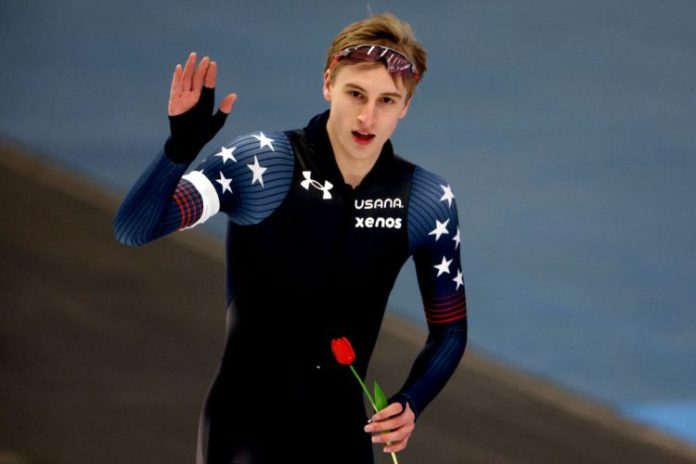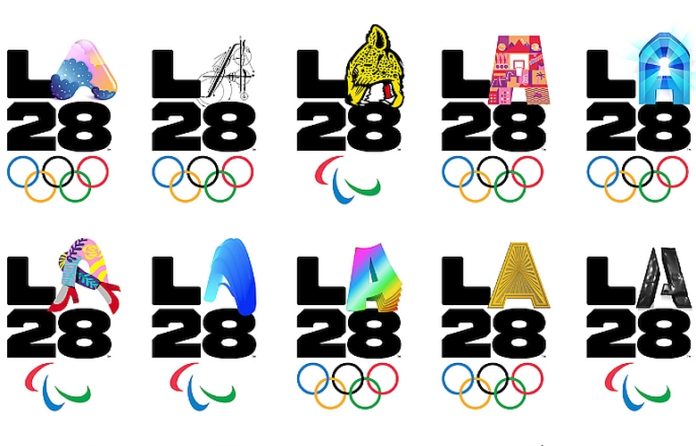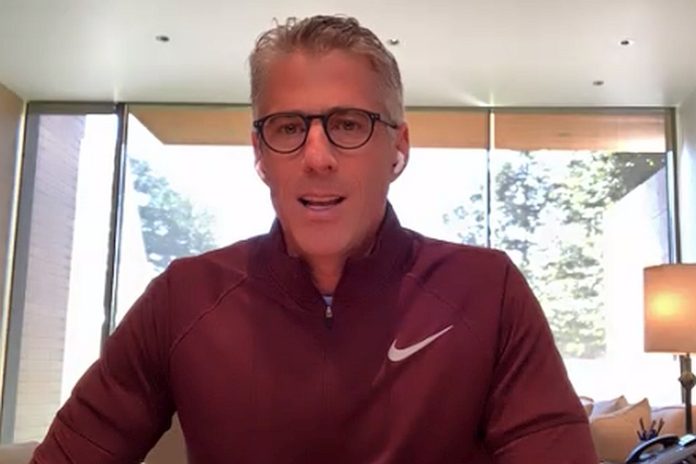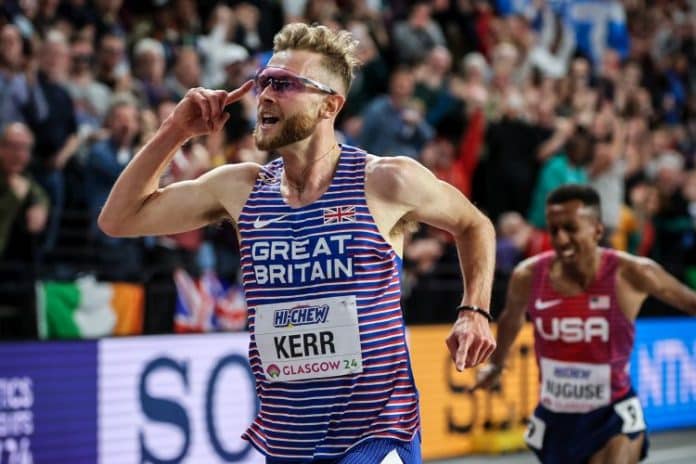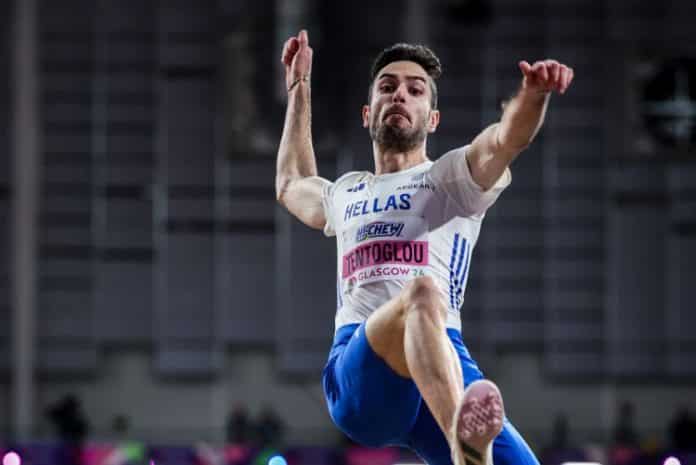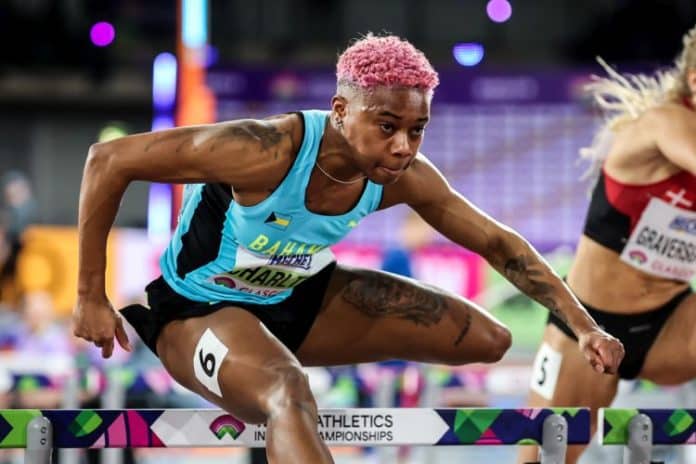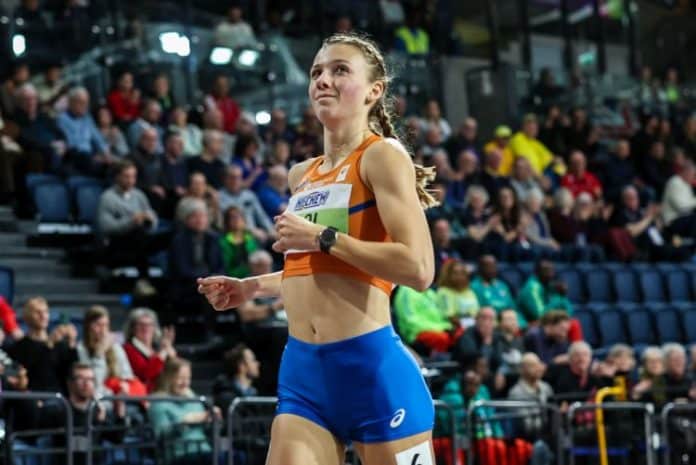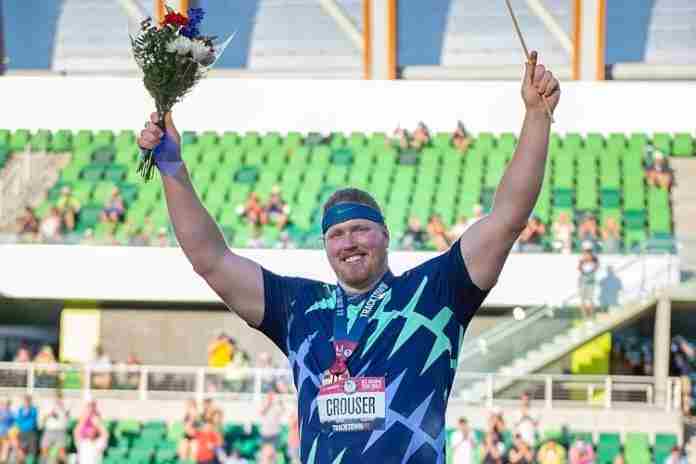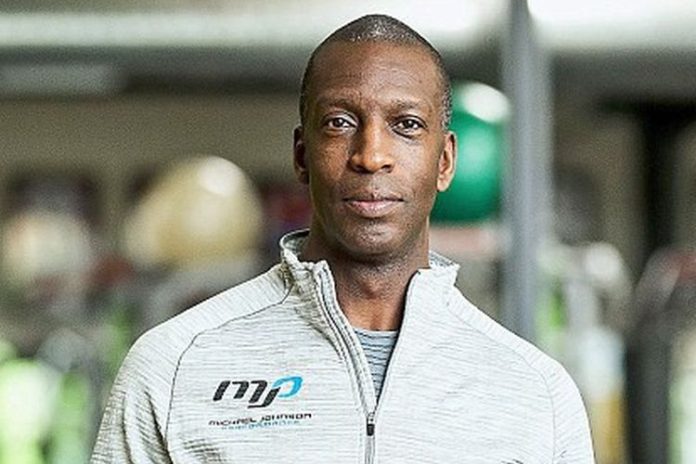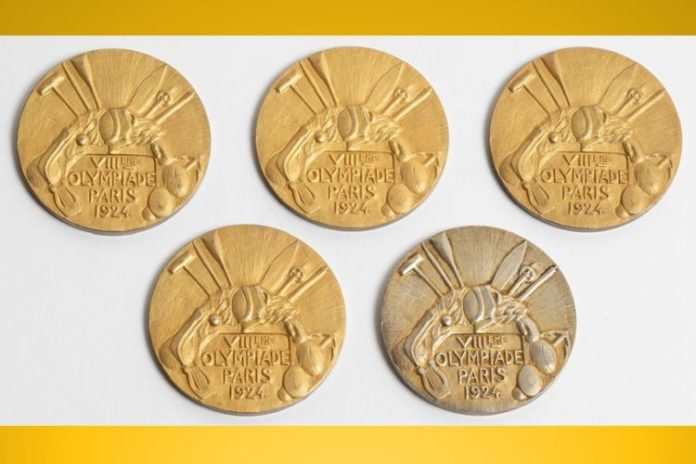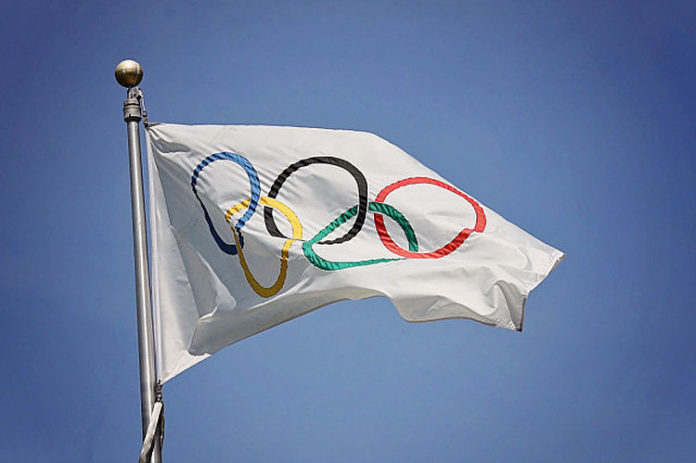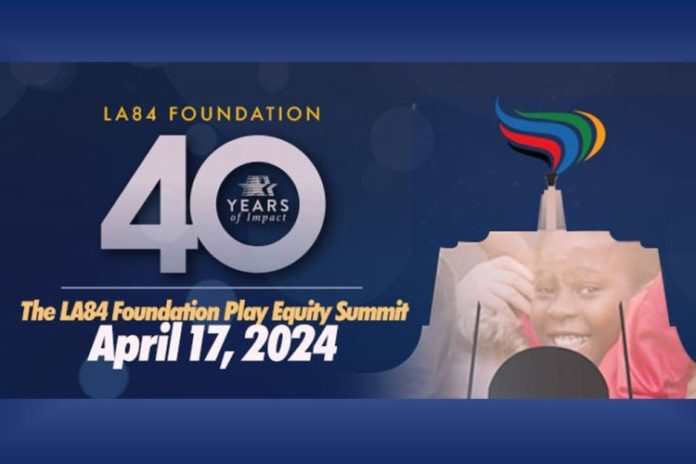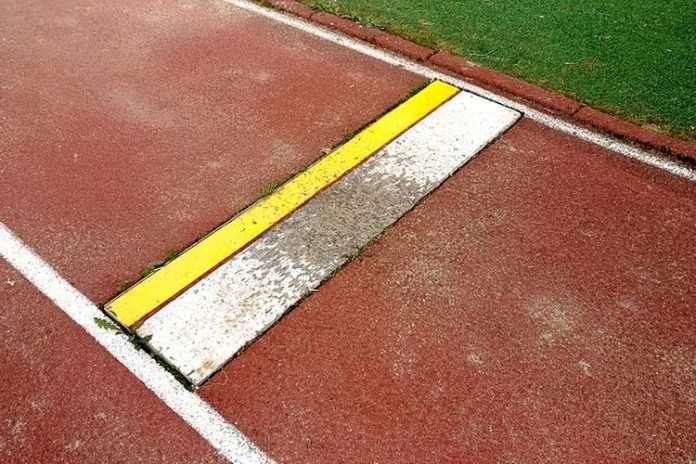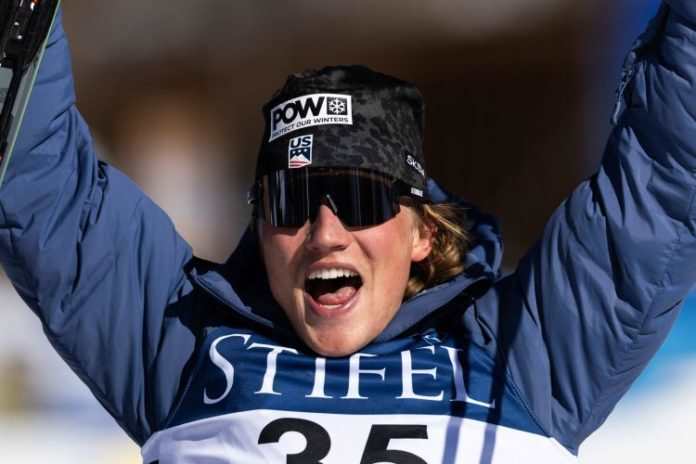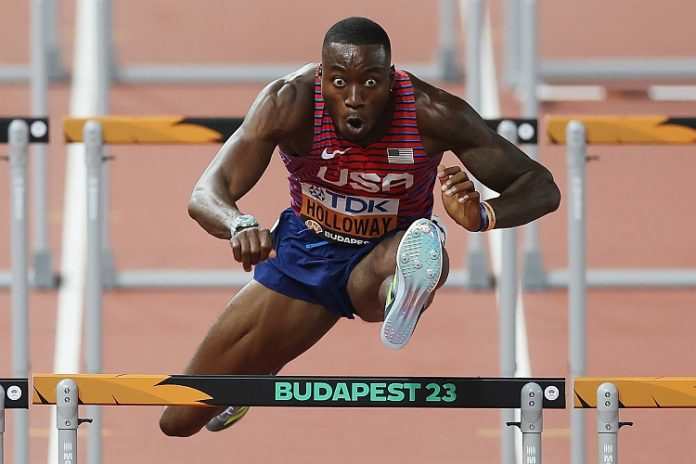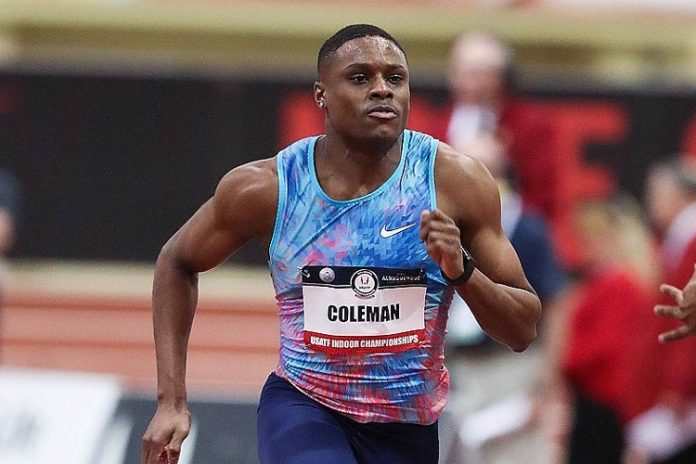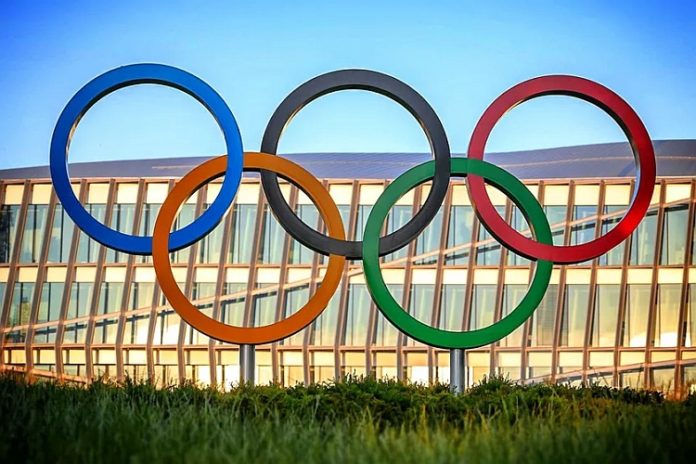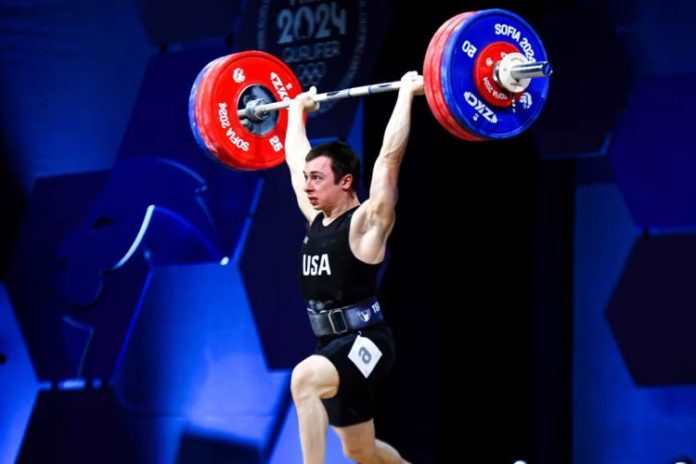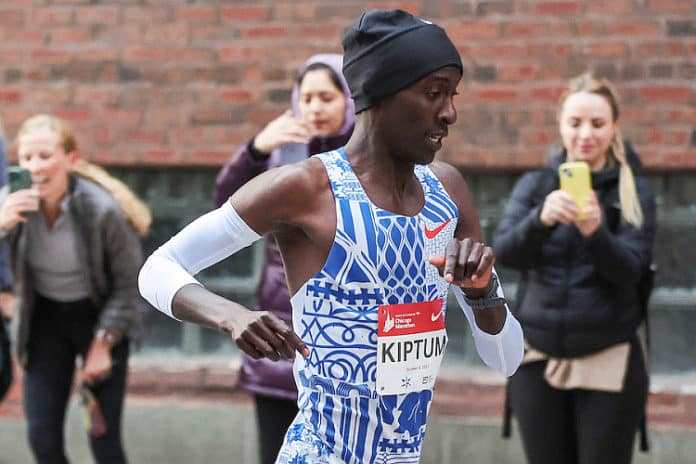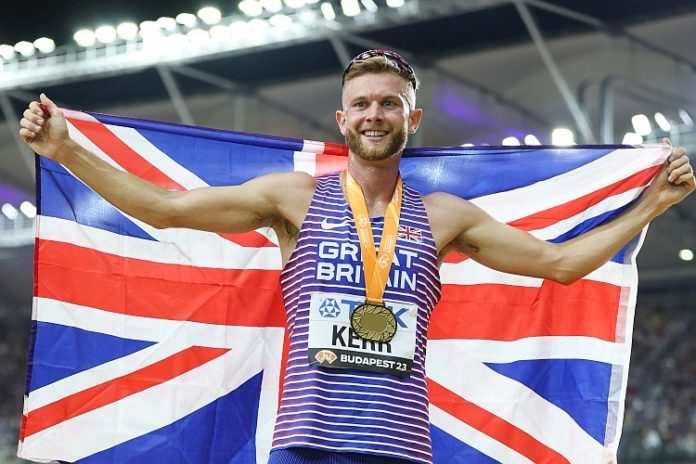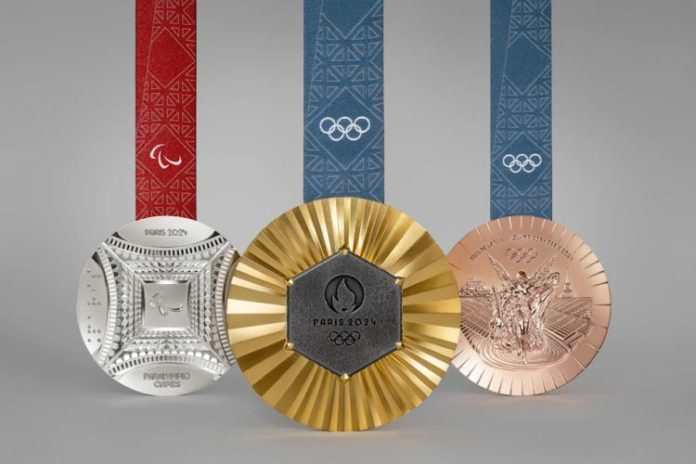★ The Sports Examiner: Chronicling the key competitive, economic and political forces shaping elite sport and the Olympic Movement.★
★ To get The Sports Examiner by e-mail: sign up here! ★
★ Last week! Please help with our winter donation drive! Now 43 donors have covered 76.0% of our tech and support costs. Please consider a contribution to help keep TSX going. Thank you. ★
≡ THE 5-RING CIRCUS ≡
1. Study says IOC’s “Framework on Fairness” fails to protect women
2. Malaysia passes on 2026 Commonwealth Games
3. Council of Europe head urges no Russians at Paris 2024
4. Paris 2024 volunteer uniforms unveiled at La Defense Arena
5. U.S. shuts down Mexico, 2-0, in CONCACAF Nations League final
● A new, multi-national study of transgender regulations in sport says that males who experience puberty have permanent advantages over women and the IOC’s Framework on transgender status insufficiently protects women. It calls on the IOC to change its stance.
● The government of Malaysia examined the costs of hosting the 2026 Commonwealth Games – it hosted in 1998 – and decided it was too expensive, even with a £100 million subsidy from the Commonwealth Games Federation.
● The head of the Parliamentary Assembly of the Council of Europe, Greek Theodoros Rousopoulos, asks IOC why Russian and Belarusian athletes who are state-funded should be allowed in Paris?
● At a huge rally at the Paris La Defense Arena, the Paris 2024 volunteer uniforms were unveiled, a 15-piece collection made partially of recycled materials and reflecting French naval history. A million pieces were produced (250,000 T-shirts), with 53% made in France.
● At the CONCACAF Nations League final in Arlington, Texas, the U.S. defense smothered Mexico at every turn and brilliant strikes from Tyler Adams and Gio Reyna were the keys to a 2-0 win and a third straight U.S. Nations League triumph.
● World Championships: Curling (Canada halts Swiss women’s title streak!) ~ Figure Skating (Malinin magnificent to win first World title, as Sakamoto and Chock and Bates repeat) ●
● Panorama: African Games (Ghana delivers as Egypt tops medal count in Accra) = Alpine Skiing (Odermatt finishes with four Crystal Globes, and Ledecka wins another Super-G) = Biathlon (Irwin sweeps U.S. Nationals) = Bobsled & Skeleton (2: Friedrich wins two, Germany sweeps bob titles; Ro wins final Skeleton race, but Bos takes seasonal win) = Canoe & Kayak (Harrison takes U.S. C-1 200 Olympic Trials, on the way to Paris) = Cross Country Skiing (McCabe sweeps U.S. women’s nationals) = Cycling (3: Pogacar storms to Volta a Catalunya win; van der Poel wins E3 Saxo Classic; Pedersen and Wiebes win Gent-Wevelgem sprints) = Diving (China wins the individual events, Britain (3) and U.S. (2) win team at Berlin World Cup) = Fencing (3: Cannone wins twice in Tbilisi Epee World Cup; Rizzi takes two in Nanjing Epee World Cup; Szatmari and U.S. men takes Budapest Sabre titles) = Freestyle Skiing (2: Mobaerg and Thompson take Ski Cross wins; U.S.’s Forehand wins Slopestyle Crystal Globe) = Gymnastics (2: Krasnobaeva, 16, wins two at Rhythmic World Cup; China wins two in Trampoline World Cup) = Judo (Georgia wins four at Tbilisi World Cup) = Shooting (Roe, Abeln, Tucker, Maddalena could do two events each in Paris after U.S. Rifle-Pistol Trials) = Ski Jumping (2: Kraft wins season title, but Prevc family gets three wins in Planica!) = Snowboard (2: Grondin and Trespeuch take Snowcross globes; Brearly and Murase win Slopestyle titles) = Swimming (Acerenza and Beck win Open Water World Cup opener) ●
1.
Study says IOC’s “Framework on Fairness” fails to protect women
“The IOC framework on fairness, inclusion and nondiscrimination on the basis of gender identity and sex variations is misaligned with current scientific and medical evidence and offers insufficient protection of fair competition for female athletes within a female category.”
That’s from a new study, published Thursday in the Scandinavian Journal of Medicine & Science in Sport, and principally authored by Tommy Lundberg of the Karolinsja Institutet in Stockholm (SWE), Ross Tucker of the University of Stellenbosch (RSA) and Emma Hinton of the University of Manchester School of Biological Sciences in Great Britain.
The paper looks to discredit the International Olympic Committee’s 2021 “IOC Framework on Fair, Inclusion and Non-Discrimination on the Basis of Gender Identity and Sex Variations,” which took the position that each sport must develop its own, independent regulations concerning transgender athletes and those with differences in sex development (hyperandrogenism). In particular, the Framework states:
“Eligibility criteria should be established and implemented fairly and in a manner that does not systematically exclude athletes from competition based on their gender identity, physical appearance and/or sex variations.”
The new study refutes this approach as regards transgender athletes:
“We argue that eligibility criteria for female competition must consider male development rather than relying on current testosterone levels. …
“The IOC framework states that there should be ‘no presumption of advantage’ based on ‘biological or physiological characteristics,’ and that eligibility criteria should recognize individual-level differences in factors that impact performance and safety.
“We and others disagree with the IOC principle of no presumed advantage, despite the further explanation provided by the position statement. It is incoherent for the IOC to take a stance of ‘no presumption of advantage’ when a transitioning transgender woman athlete comes directly from a population with an inherent and well-established male biological advantage.
“It would be more logical to assume a biological advantage until proven otherwise, especially as several physical attributes (e.g., stature, heart, lung, bone, and muscle size) have not been shown to be reversed with any treatment, as we describe subsequently.”
In specific:
“It is well established that exposure to higher levels of testosterone during male versus female development promotes the development of male sex characteristics (e.g., larger muscle mass, heart size, lung capacity, bones, strength, and circulating hemoglobin) that are integral for sports performance.
“Thus, it is not the adult level of testosterone that predicts the performance of an individual athlete, but rather developmental exposure to testosterone and the development of male secondary sex characteristics that underpin the existence of the male category and category-level differences between the sexes.”
The study notes that post-puberty males retain skeletal advantages that are not reduced by testosterone-reduction therapy, in fact, “testosterone suppression for 1 year induces only a 5% loss of pre-transition muscle mass/strength.”
And while the authors applaud the IOC’s intentions, its focus is misplaced:
● “We agree that everyone should be welcome in sports, regardless of gender identity. However, this does not entail a right to compete in opposite-sex categories, as this conflicts with the established human right of female athletes to nondiscrimination and equal opportunities based on sex.”
● “The IOC position statement states that the athletes ‘most directly impacted by eligibility criteria’ are transgender athletes and/or athletes with sex variations, while – remarkably – female athletes are not identified as stakeholders.”
At the end, the study asks:
“The IOC must reconsider its framework and revise the 10 principles to reflect scientific evidence and fundamental principles of fair competition. We also recommend implementing a system to enable female stakeholders to be consulted in this matter and to have their voices heard, recognized, and valued.”
Observed: The study did not deal with differences in sex development (hyperandrogenism), but only transgenders.
While the IOC’s 2021 Framework document has led to new reviews of transgender policies, many of the leading international federations in which transgenders could be an issue have taken a different path. World Aquatics, World Athletics, the Union Cycliste Internationale and others have required very low testosterone levels and World Aquatics was the first to exclude female transgenders who had begun puberty, more in alignment with the new study than with the IOC’s Framework.
The IOC noted that its Framework document calls for consideration and is not a series of regulations. So far, actions by larger international federations have moved toward the study’s point of view, but more research, reporting and regulations are on the way.
2.
Malaysia passes on 2026 Commonwealth Games
After a short review, the Malaysian government decided not to offer to organize the 2026 Commonwealth Games. Youth and Sports Minister Hannah Yeoh posted a Friday statement that included (computer translation from Indonesian):
“The Ministry of Youth and Sports today announced the Government’s decision not to accept the offer of the Commonwealth Sports Federation (CGF) to host the 2026 Commonwealth Games. The Ministerial Conference which convened today has taken this decision after examining all aspects recommendations and implications.
“A delegation from the CGF met the Minister of Youth and Sports and held an information session regarding the offer to host the event which was also attended by the Second Minister of Finance on February 5 2024.
“The results of the meeting were presented at the Ministerial Congregation Meeting and, among other things, it was stated that the CGF’s offer of 100 million pounds (RM603 million) was thought to be unable to cover the total costs of organizing a large-scale sporting event. In addition, the economic impact cannot be determined in this short period of time.
“The Madani Kingdom would like to thank the CGF for offering to host the 2026 Commonwealth Games. However, at this time the government wants to focus on sports development as well as the goodness and welfare of the people.”
The Commonwealth Games Federation’s offer of £100 million (about $126.0 million U.S.) came from the A$380 million (~$247.6 million U.S.) paid by the state of Victoria, Australia, after it abandoned the hosting of the 2026 Games last year.
Singapore has indicated interest in 2026, but has made no announcements on its decision. For its part, the Commonwealth Games Federation has said it is willing to move the event to 2027, or even disassemble it and hold Commonwealth Games championships in individual sports.
3.
Council of Europe head urges no Russians at Paris 2024
The President of the Parliamentary Assembly of the Council of Europe (PACE) urged the International Olympic Committee not to allow any Russian or Belarusian athletes to participate at the Paris 2024 Olympic Games.
Although the IOC has made the decision to allow a limited number of Russian and Belarusian “neutrals” to compete in Paris, Theodoros Rousopoulos (GRE) released a statement which included:
“It is very clear that the fundamental principles of Olympism are therefore, by definition, opposed to war.
“So I put the question: should athletes from a country which has invaded another one take part in the Olympics and proudly represent this country? Or, put another way: can we condemn Russia for bombing Ukrainian civilians, kidnapping children, torturing prisoners, carrying out massacres – and then applaud its athletes? Knowing that many of these athletes are actually engaged in the Russian army, and the vast majority of them receive State salaries? Is this the spirit of Olympism?
“In the Parliamentary Assembly, which brings together parliamentarians from 46 countries, we discussed this question several times, we heard different opinions, and a year ago we adopted a resolution with a straightforward answer: Russian and Belarusian athletes should not compete in the Paris Olympic Games. Why? Because their participation would be an insult to Ukrainian athletes, several of whom have died because of the war, and the majority of whom are not able to train properly, because of the destruction of sport infrastructure.
“I have heard some people suggest that athletes and sportspeople should not be held responsible for the decisions of their governments. Let’s not be naïve. Any victory by these athletes, even under a neutral flag, could be celebrated – and used – as a tool for propaganda, creating a narrative of acceptance and normalisation that downplays the gravity of the actions of the Russian and Belarusian Governments.”
Prior discussions at the Council of Europe have focused on an area noted by Rousopoulos: disqualification of Russian or Belarusian athletes who receive state funding. This is not part of the criteria being used by the IOC and its Eligibility Review Panel and will not be a reason for disqualification.
Rousopoulos insisted in his statement that “any participation by Russian and Belarusian citizens will not be used as propaganda.” With the IOC ready to allow at least some Russian and Belarusians into Paris 2024, there is no doubt that the propaganda infrastructures in both countries will be working overtime come July.
4.
Paris 2024 volunteer uniforms unveiled at La Defense Arena
A “volunteer convention” that drew a huge crowd to the Paris La Defense Arena on Sunday, which saw the unveiling of the Paris 2024 volunteer uniforms.
Designed by the French sportswear firm Decathlon, the uniform program for the 45,000 volunteers for the Games is a unisex design, with sizing from extra-small to 4x extra-large, made from recycled polyester, recycled polyamide and organic cotton. Some 53% of the production was made in France – Roubaix, Marseille, Troyes and Orleans – with a grand total of 1,000,000 total pieces produced.
Everyone gets 15 pieces:
● 4 T-shirts (250,000 in blue and aqua)
● 2 pairs of pants, convertible to shorts (blue)
● 4 pairs of socks (two blue, two pink)
● 1 pair of shoes (white)
● 1 windproof vest (white)
● 1 jacket (white)
● 1 hat (multi)
● 1 cross-body bag
Careful planning went into the design; according to Decathlon (computer translation from French):
“Each product is designed to be antiperspirant and buildable. In addition to its obvious function, the bucket hat features UPF50+ fabric to ensure protection against UV rays in summer weather (at least 95% of the rays are blocked).”
Decathlon’s Artistic Director, Philippe Daguillon said his favorite item in the collection was the T-shirt:
“We are proud of the result because we make a nod to France and its history by drawing inspiration from the codes of the sailor shirt (stripes, 3/4 sleeves) while combining the codes of today’s sport: neckline, markings. The fact is that the pattern printed on the body is cut randomly in production so that each Tshirt is unique while belonging to the same family/uniform.”
Stylist Quentin Despagne is partial to the multi-colored hat:
“Light and breathable, it provides more coverage than a cap and perfectly meets the need for volunteers to use it in direct sunlight this summer. The printed pattern makes the volunteer stand out in a crowd and will certainly make an impression on the public coming to attend the Games.”
No schedule has been announced for the distribution; staff uniforms have not been previewed yet.
5.
U.S. shuts down Mexico, 2-0, in CONCACAF Nations League final
Yet another trophy was decided in a U.S.-Mexico final, this time for the CONCACAF men’s Nations League, at AT&T Stadium in Arlington, Texas. But as with the two prior Nations League finals, the outcome was the same: a U.S. win.
The Americans went on offense right away and controlled most of the half. The U.S. got a quick chance to score in the fifth minute, as midfield star Christian Pulisic was in on left side of the Mexican goal off a headed pass from Gio Reyna, but Pulisic’s right-footed shot was expertly saved by iconic Mexican keeper Memo Ochoa. Mexican midfielder Luis Chavez took a left-footed whack at a loose ball in the 22nd minute from inside the box, but American keeper Matt Turner made the save.
U.S. right back Sergino Dest let go with a screamer from just beyond the box in the 38th that went just over the top of the Mexican net, a good idea that paid off a few minutes later.
It looked like a 0-0 half, but with seconds to play, the U.S. was looking for offense in the Mexican zone, with midfielder Weston McKennie sending a pass into the middle for fellow midfielder Tyler Adams. Only loosely marked, Adams moved right and sent a right-footed rocket from 15 yards beyond the top of the box toward the left corner of the Mexican that went through the legs of flying midfielder Erick Sanchez and steamed past Ochoa for a 1-0 lead!
The U.S. had 61% possession in the half, which had only four shots for the U.S. and one for Mexico.
The Americans continued to control most of the play in the second half, but Mexico’s Chucky Lozano and Henry Martin were active in the U.S. zone, but did not seriously challenge Turner. Then what appeared to be a safe clearance in front of the Mexican goal in the 63rd by defender Johan Vasquez bounded out to Reyna just inside the box on the left side; he had space, and ripped a right-footed liner that flew past Ochoa for a 2-0 lead.
Then, U.S. defender Antonee Robinson tried to clear a ball at the edge of the box in the 72nd and had his leg way up in the air and appeared to bring down sub striker Santiago Gimenez for a penalty, but a video review by referee Drew Fischer (CAN) called it no foul, as Robinson hit the ball before any contact.
The U.S. threatened again in the 87th, as Pulisic was in for a close shot from the left side, but Ochoa blocked it. A subsequent goal kick by Turner was followed by a three-minute stoppage in play due to the re-appearance of the infamous discriminatory chant by frustrated Mexican fans.
The match was stopped again at 90+6 and Fischer finally blew the whistle at 90+9.
The U.S. back six was excellent and irritated the Mexican attack throughout, and two magical strikes from Adams and Reyna were more than enough. The Americans ended with 53% of possession and an 11-9 edge on shots.
There have been three editions of the Nations League and the U.S. has won them all: in 2020 over Mexico, in 2023 over Panama and now over Mexico again.
In the third-place match, Jamaica held a 1-0 halftime lead on Panama, on a Dexter Lembikisa goal in the 41st, as the Reggae Boyz were the aggressors with a 7-3 edge on shots. Panama turned up the offense in the second half and out-shot the Jamaicans, 8-3, but to no avail as they could not sure and lost by 1-0, despite 62% possession in the game. Jamaican keeper Andre Blake made four saves to preserve the win.
≡ WORLD CHAMPIONSHIPS ≡
● Curling ● The big question going into the 2024 Women’s World Championship in Sydney (CAN) was whether anyone could derail the four-time defending champion Swiss juggernaut, skipped by Silvana Tirinzoni?
Canada, skipped by 2017 World Champion Rachel Homan, compiled the best record in the round-robin, finishing at 11-1, with an 8-5 win over the Swiss, but a 6-5 loss to Eun-ji Kim’s Korean rink.
Tirinzoni’s squad was 10-2 and second, with Stefania Constantini’s Italian rink also at 10-2 in third. The U.S., skipped by Tabitha Peterson, finished 6-6 and because of a loss to Denmark (also 6-6), ended up seventh and outside the playoffs.
Kim’s Koreans ousted Sweden by 6-3 and Italy swept past Denmark, 7-4, in the qualification games, setting up two tense semifinals. The Swiss and Italy were 2-2 after six ends, but then Tirinzoni’s squad managed two points in the seventh, gave one back in the ninth, but scored twice in the 10th for a 6-3 win and their fifth straight Worlds gold final.
Homan and Canada were in a wild match with Kim and Korea, scoring twice in the second only to see Korea up, 3-2, after three. Kim was up, 5-4, after seven, but a two-score seventh gave Homan a 6-5 lead. No problem for Kim, who responded with a two-point ninth to lead, 7-6, into the final end. But Homan pulled out the win with a three-score final end and took the match by 9-7!
In the final, Homan scored in the first, but the Swiss led 2-1 after two ends and 4-2 after four. But Homan tied it with two in the fifth and after a Swiss score in the eighth, struck back with three in the ninth for the 7-5 win and Canada’s first win since 2018. It was also their 18th women’s Worlds gold. It was the first Swiss loss in a final since 2000, with eight straight wins coming into 2024.
Kim’s Korea squad won the third-place match by 6-3, the country’s third medal in the women’s Worlds, after a bronze in 2019 and silver in 2022.
● Figure Skating ● Defending champions were back on top at the 2024 ISU World Championships in Montreal (CAN), with history made in the women’s final, but a new American star taking the men’s title.
Japan’s defending champion, Kaori Sakamoto, entered Friday’s Free Skate standing in fourth place, a significant 3.69 points behind leader Loena Hendrickx of Belgium. But Sakamoto saved her best for last and skated an elegant, clean program that earned a seasonal best of 149.67, more than 11 points better than the rest of the field and vaulted her into first place at 222.96 for her third straight Worlds gold.
That hadn’t been done on the women’s side since the 1966-67-68 wins for American Peggy Fleming!
The U.S.’s Isabeau Levito, 17, fourth at the 2023 Worlds, was in second place after the Short Program and authored another solid performance, scoring 138.43 for second-best and a total of 212.16 that won the silver medal! Korean Chae-yeon Kim, also 17, got a seasonal best of 136.68 for a 203.59 total, in third when Hendrickx came on as the last skater.
But the two-time Worlds medalist suffered a fall and had a jump downgraded, leaving her eighth in the Free Skate and fourth overall at 200.25. American Amber Glenn was 10th overall at 186.53. Said an ecstatic Levito:
“At the end of program I threw my arms out and hopped on the ice. I was in a state of shock that I did that. I had two goals coming into this World Championship, getting on the podium and securing the third spot for the American women next year. I did both. It was extremely satisfying. I worked so hard for this moment, it took everything of me and I did it.”
Defending champions Madison Chock and Evan Bates of the U.S. left little doubt in Ice Dance, winning their second straight title and their fifth Worlds medals (2-1-2), winning the Rhythm Dance at 90.08, building a 2 1/2-point lead. They were second in the Free Dance, 133.14 to 132.12 to Canada’s Piper Gilles and Paul Poirier, but won the overall title at 222.20 to 219.68.
It’s the third Worlds medal for Gilles and Poirier, third in 2021 and 2023. Italy’s 2023 runners-up, Charlene Guignard and Marco Fabbri, fell to third in the Free Dance, scoring 129.00 for a 216.52 total and the bronze medal.
Americans Christina Carreira and Anthony Ponomarenko were a very creditable seventh overall at 200.32.
The men’s final asked whether Japan’s Shoma Uno could collect a third straight Worlds golds, not done since Nathan Chen of the U.S. in 2018-19-21. Uno led after the Free Skate, 107.72-106.35-105.97 over teammate Yuma Kagiyama and Ilia Malinin of the U.S.
Malinin, the master of the quadruple jump and the only one to ever complete a Quadruple Axel in competition, went last and opened with four straight quads and added two more later and scored a spectacular lifetime best of 224.76, the highest Free Skate score in history (!) and a total of 333.76, the no. 2 score ever!
Kagiyama started off with three quads, but fell on a Triple Axel and scored 203.30 for a 309.65 total, his second-best score ever and 12th-best ever.
Uno also programmed three quad jumps to start his program, but fell right away and ended up sixth in the Free Skate at 173.13. His total of 280.85 left him fourth overall, behind France’s Adam Siao Him Fa, whose 206.90 Free Skate (second) and 284.39 total vaulted him from 19th to the bronze medal! American Jason Brown finished fifth overall at 274.33.
Malinin was in his third Worlds: ninth in 2022, bronze in 2023 and now gold in 2024, at age 19. Have no doubt, he IS the favorite now for Milan Cortina 2026.
≡ PANORAMA ≡
● African Games ● There was great concern whether the 2023 African Games, awarded to Accra (GHA), would ever come off, but it did and concluded Sunday with Egypt the big winner.
The Egyptians amassed 191 total medals (102-47-42), to 121 for Nigeria (47-34-40), 114 for Algeria (29-38-47) and 106 for South Africa (32-32-42). Some 2,644 athletes from 53 countries participated, with 335 events held in 22 sports and seven demonstration sports (including Scrabble).
The big individual medal winners starts with Algerian swimmer Jaouad Syoud, who won nine in all (4-1-4), including golds in the men’s 50 and 200 m Breast and 200-400 m Medleys. Egyptian star Farida Osman won eight medals (4-4-0), including wins in the 50 m Free and 50-100 m Fly. Fellow Egyptian swimmer Abdalla Nasr also won eight medals (3-4-1), with individual golds in the men’s 100-200 m Fly.
On the track, there were outdoor world-leading marks in six events:
● Men/4×100 m: 38,41 Nigeria
● Men/Triple Jump: 16.97 m (55-8 1/4), Hugues Fabrice Zango (BUR)
● Men/Decathlon: 7,500 Friedrich Pretorius (RSA)
● Women/400 m: 50.57 Mary Moraa (KEN)
● Women/800 m: 1:57.73 Tsige Duguma (ETH)
● Women/Steeple: 9:15.61 Beatrice Chepkoech (KEN)
Zambia set an African Games record of 2:59.12 in the men’s 4×400 m, and Ethiopian star Hirut Meshesha got a Games mark of 4:05.71 in winning the women’s 1,500 m.
World-record holder Chepkoech also got a Games record in the women’s Steeple and three field-event meet records were set by Mire Reinstorf (RSA: 4.35 m/14-3 1/4) in the women’s vault, Zahra Tatar (ALG: 69.65 m/228-6) in the women’s hammer, and in the women’s javelin by Jo-Ane van Dyck (RSA: 60.80 m/199-6).
● Alpine Skiing ● No doubt about the seasonal winners, but still surprises in the final World Cup of the season in Saalbach (AUT).
The women’s season finished first, with 2018 Olympic Super-G winner Ester Ledecka – primarily a snowboard star – showing she’s still in the mix with her fourth career World Cup gold in the Super-G in 1:15.94, beating Italian star Federica Brignone (1:16.22) and Kajsa Lie Vickhoff (NOR: 1:16.24). Lauren Macuga was the top U.S. finisher, in 14th (1:17.10).
Overall winner Lara Gut-Behrami (SUI) also took the seasonal Super-G title with 576 points, to 546 for Brignone.
Saturday’s Downhill saw the sixth career win for Austrian Cornelia Huetter, just ahead of Ilka Stuhec (SLO: 1:45.25) and Nicol Delago (ITA: 1:45.57). Jacqueline Wiles was the top U.S. finisher in 13th (1:46.53).
Huetter’s win stole the seasonal Crystal Globe, with 397 points to 369 for Gut-Behrami.
The men’s Super-G was a Swiss sweep, but with a new face on top of the podium: 29-year-old Stefan Rogentin (1:13.36), who took his second career World Cup medal and his first gold! He was just 0.03 up on teammate Loic Meillard (1:13.39), who won his first medal in the last six World Cup races. Arnaud Boisset was third (1:13.51), who his first career World Cup medal.
Jared Goldberg of the U.S. was 11th (1:14.26). Seasonal winner Marco Odermatt (SUI) had long wrapped up the Super-G title at 495 points, to 409 for Vincent Kriechmayr (AUT).
Sunday’s Downhill was canceled due to heavy snow and wind, so Odermatt won the seasonal discipline title with 552 points to 510 for emerging French star Cyprien Sarrazin. In addition to his overall World Cup title, he took the seasonal wins for Downhill, Super-G and Giant Slalom!
● Biathlon ● At the U.S. National Championships at Fort Kent, Maine, Beijing Olympian Deedra Irwin swept the women’s senior-level events, taking both the Sprint and the Pursuit.
She won the Sprint by more than two minutes over Grace Castonguay, 27:11.3 (3 penalties) to 29:43.0 (4), and beat Castonguay in the Pursuit, 59:53.3 to 1:05:06.4 (no penalties reported).
Jake Brown won the men’s Sprint in 28:39.3 (4) over Maxime Germain (28:49.3/2), but Germain took the Pursuit in 1:07:56.0, beating Sean Doherty 1:08:11.0, with Brown fourth (no report on penalties).
● Bobsled & Skeleton ● The season’s final IBSF World Cup was in Lake Placid, New York, with a confirmation than even though he did not win as many races as he would like, it’s still hard to beat Germany’s Francesco Friedrich.
The two-time Olympic champ in both the two-man and four-man sleds, Friedrich had not won a World Cup race this season, but he was clearly the best this time, teaming with Alexander Schueller to win both runs and the total of 1:49.70. He led a German sweep as Johannes Lochner, the Beijing Olympic runner-up, was second in 1:49.95 and emerging star Adam Ammour got third (1:50.60). Americans Frank Del Duca and Manteo Mitchell were fifth (1:50.96) and Kristopher Horn and Joshua Williamson finished sixth (1:51.16).
Friedrich took the seasonal title with 1,675 points to 1,512 for Lochner and 1,410 for Ammour; Del Duca was the top U.S. driver, in eighth (1,192).
Friedrich completed his sweep in Lake Placid by winning the Four-Man in 54.75, as only one run was complete due to damage in the ice layer during the second run. Lochner was second (54.92) and Ammour was third (55.03). Del Duca was seventh (55.19) and Horn was eighth (55.26) for the U.S.
This was Friedrich’s fifth win of the World Cup season – out of eight races – and he was an easy winner of the seasonal crown, with 1,745 points. Latvia’s Emils Cipulis was second (1,529) and Lochner was third (1,515). Del Duca was the top American, in 14th (504).
Australian Bree Walker got her first World Cup in the women’s Monobob in 1:58.67, winning both runs and taking her fifth medal of the season. American Elana Meyers Taylor, fully back in action after maternity, won her third straight World Cup medal and her second straight silver, in 1:58.91, with Canada’s Cynthia Appiah (1:59.13) third, for her first medal of the season. Kaysha Love of the U.S. was fifth (1:59.32).
German Lisa Buckwitz, the 2018 Olympic Two-Woman gold winner, won the seasonal title with 1,644 points to 1,549 for Walker and 1,547 for German Lisa Nolte. Love, in her first season as a driver, was fourth (1,516) and Meyers Taylor was fifth (1,508).
The 2023 World Champion in the Two-Woman sled, German Kim Kalicki, won her third World Cup of the season in Lake Placid – with Leonie Fiebig – in 1:53.59, ahead of surprise silver winners Adele Nicoll and Kya Placide (GBR: 1:54.20). Nolte, the Beijing Olympic winner, teamed with Claudia Schuessler for third (1:54.24).
The U.S. finished 6-7 with Meyers Taylor and Emily Renna (1:54.53) and Love and Azaria Hill (1:54.62).
Nolte won the seasonal title with 1,720 points to 1,683 for Kalicki, 1,539 for Buckwitz, with Meyers Taylor fifth (1,240).
¶
The U.S. got a happy victory in the final women’s Skeleton event, with find-of-the-season Mystique Ro winning her fourth medal of the season and her first win in 1:50.33, to 1:50.37 for Kim Meylemans (BEL) and 1:50.55 for seasonal winner Kimberley Bos (NED).
American Katie Uhlaender finished fourth in 1:50.61; Bos won the seasonal title with 1,570 points to 1,364 for Meylemans. Ro finished eighth with 1,175.
● Canoe & Kayak ● The American Canoe Association’s Olympic Selection Trials were held at Lake Natoma, California (near Sacramento), with the U.S. so far qualified for only one place in Paris, in the women’s C-1 200 m.
That spot came from Nevin Harrison, the Tokyo 2020 Olympic gold medalist in the event, via her fourth-place finish at the 2023 Worlds. She’s headed to Paris to defend her title after her Trials win in 49.050 over Andreea Ghizila (49.416).
The U.S. can compete for more Paris entries at the Pan American Olympic Qualifier, to be held in mid-April in Sarasota, Florida; Harrison was the only U.S. Sprint entry at Tokyo 2020.
The other women’s winners who could compete in Sarasota include Ghilzia and Azuza Murphy, who won the C-2 500 m final in 2:09.188, in a tight match with Emma Albrecht and Audrey Harper (2:10.106). Ghizila also won the non-Olympic C-1 500 m race with more than three seconds to spare, winning in 2:22.326, to 2:25.663 for Harper.
Elena Wolgamot crossed first in the K-1 500 m final in 2:04.625, with Kali Wilding second in 2:07.062, and then the two of them teamed up to win the K-2 500 m final in 1:57.104, with Emma McDonald and Knytly Sybounmy second in 2:04.551.
In the men’s finals, Jonathan Grady took the C-1 1,000 m win by more than two seconds in 4:08.477, with Ian Ross second in 4:11.118. Grady and Kenny Kasperbauer teamed to win the C-2 500 m final in 1:59.731, with Isaac Lozano and Alistair Leith the only other finalists (2:19.145), and Kasperbauer routed the field in the non-Olympic C-1 500 m final, winning in 2:08.195, with Ryan Grady second in 2:15.827.
Jonas Ecker won all three kayak finals, taking the K-1 1,000 m win against Cole Jones, 3:39.381 to 3:42.047, and then Ecker and Aaron Small won the K-2 500 m final by less than a half-second in 1:36.637 against Jones and Sean Talbert (1:37.130).
Ecker also won the non-Olympic K-1 500 m, winning with plenty to spare in 1:46.582, with Small second in 1:50.245.
● Cross Country Skiing ● Novie McCabe, a 2022 World Junior relay medalist, swept the women’s Sprint and Individual events at the U.S. Spring National Championships in Duluth, Minnesota.
She took the Classical Sprint final in 3:28.17 to 3:28.53 for Erin Bianco and the 10 km Classical Individual race in 26:27.0, ahead of Sydney Palmer-Leger (26:44.0).
Beijing Olympian James Schoonmaker took the men’s Classical Sprint final in 2:52.86, with Zanden McMullen second (2:53.73) and Antoine Cyr (CAN: 2:54.25) third. Cyr won the men’s 10 km Classical in 22:39.8, beating John Steel Hagenbuch (22:51.5).
The men’s and women’s 40 km Freestyle will be held Tuesday.
● Cycling ● Two-time Tour de France winner Tadej Pogacar (SLO) gave notice he will be a contender for all honors again this year with a dominating performance at the 103rd Volta Ciclista de Catalunya in Spain.
Pogacar, a great climber, won the uphill-finishing second stage by 1:23 and the triple-climb third stage by 0:48 to establish a 2:27 lead over Spain’s Mikel Landa. That stayed unchanged until Saturday’s final climbing stage, a five-rise route from Berga to Queralt over 154.7 km, and Pogacar put away the field by 0:57 for his third win and a final-day lead of 3:31 over Landa and 4:53 ahead of Egan Bernal (COL).
Sunday’s modestly-hilly seventh and final stage of 145.3 km in Barcelona ended in the expected mass sprint, with Pogacar winning his fourth stage of the race in 3:15:23, just ahead of France’s Dorian Godon and Guillaume Martin. Pogacar finished as the overall winner by 3:41 over Landa and 5:03 over Bernal, in 28:21.29.
American star Sepp Kuss was 13th, 8:20 behind the winner.
¶
Friday’s 66th E3 Saxo Classic in and around Harelbeke (BEL), was a showcase for Dutch star Mathieu van der Poel, who broke away with 44 km left on the 207.6 km course and won going away in 4:39:28, with Belgian riders going 2-3-4. Jasper Stuyven (+1:31) and two-time defending champ Wout van Aert (1:34) took silver and bronze, with Tim Wellens (+1:48) fourth and American Matteo Jorgenson fifth (1:50).
It’s van der Poel’s 19th career UCI World Tour win, to go along with his 2023 World Road title; he now has a complete set of medals, finishing third in this race in 2021, second last year and now a win.
¶
One of the famous races of the Classics season is Gent-Wevelgem, held for the 86th time for the men on Sunday (BEL), with the decision down to a final surge off the last Kemmelberg climb between Denmark’s 2019 World Road Champion Mads Pedersen and van der Poel.
Pedersen had a little more in the tank and got to the line first in 5:36:00, for his second Gent-Wevelgem victory, also in 2020. Van der Poel was second in the same time and Jordi Meeus (BEL) led the chase pack behind him in third, 16 seconds behind the winner.
The women edition, 171.2 km from Ieper to Wevelgem, came down to a mass sprint and Lorena Wiebes (NED) got her second win of the season, this time over Elisa Balsamo (ITA), with the first 38 riders all given 4:16:19.
Balsamo won this race in 2022 and in her last four races has finished 2-1-1-2.
● Diving ● The second of three stages of the World Aquatics World Cup was in Berlin (GER), with China sweeping the four individual events it entered and the U.S. and Britain winning two Synchro events each.
World Champion Zongyuan Wang was a decisive winner in the men’s 3 m Springboard with 505.90 points to 476.70 for Worlds bronze medalist Osmar Olvera, with Lars Rudiger (GER: 463.20) third.
Junjie Lian (CHN), the 2023 Worlds runner-up, won the 10 m Platform easily, scoring 542.55 to 494.50 for Rylan Wiens (CAN), with 2023 World Champion Cassiel Rousseau (AUS: 476.90) in third. Americans Zachary Cooper (440.25) and Brandon Loschiavo (435.55) went 4-5.
In the men’s 3 m Synchro, British stars Jack Laugher and Anthony Harding were clear winners, 423.37 to 397.62 for Giovanni Tocci and Lorenzo Marsaglia (ITA). American Tyler Downs and Greg Duncan took the bronze at 374.85.
Britain doubled up in the men’s 10 m Synchro, with Tom Daley and Noah Williams scoring 465.00 to 408.99 for Nathan Zsombor-Murray and Rylan Wiens (CAN). Rousseau and Domonic Bedggood (AUS) placed third at 402.57, with Americans Maxwell Flory and Cooper fourth (379.62).
China’s two-time World Champion Yiwen Chen took the women’s 3 m Springboard with 356.40 points, with Australia’s Rio Olympic Synchro bronze winner Maddison Keeney close at 344.75 and American Sarah Bacon third (327.75)
Hongchan Quan, China’s 10 m World Champion, won the Platform gold at 432.80, with Britain’s Worlds bronze winner Andrea Spendolini-Sirieix second (339.10) and Canada’s Caeli McKay third (331.30). American Delaney Schnell was fourth (326.10).
A modest five teams entered the women’s 3 m Synchro, with the American pair of Kassidy Cook and Bacon taking top honors (303.21), ahead of Keeney and Anabelle Smith (AUS: 296.73). Five teams also contested the women’s 10 m Synchro, with the U.S.’s Jessica Parratto and Schnell winning with 306.00 points. Kate Miller and McKay (CAN) were second at 282.72 and Ukraine’s Ksenila Bailo and Sofiia Lyskun got third (276.36).
Great Britain won the Mixed Team final, scoring 461.15 to 430.75 for Germany, 419.60 for Italy and 410.55 for the U.S.
● Fencing ● World no. 5 Romain Cannone of France – the Tokyo Olympic champ and 2022 World Champion – scored his second career FIE Epee World Cup win in Tbilisi (GEO) in the FIE World Cup, taking a 15-10 win over Neisser Loyola (BEL), the 2022 Worlds bronze medalist.
Cannone was also a member of the French team winners, defeating the Czech Republic in the final by 45-34.
¶
At the women’s Epee Wold Cup in Nanjing (CHN), Italy’s Giulia Rizzi took the gold with a 15-8 win over 2022 World Champion Sera Song (KOR). It’s the second medal of the season for Rizzi, who also won a Grand Prix silver on Doha in January.
She got a second gold as Italy won the team title over China, 43-34.
¶
In the men’s Sabre World Cup in Budapest (HUN), home favorite Andras Szatmari, the 2017 World Champion, defeated Italy’s 2019 Worlds bronzer Luca Curatoli, 15-10 in the final. It’s Szatmari’s second World Cup gold, but first in seven years.
The powerful U.S. men’s squad of Eli Dershwitz, Filip Dolegiewicz, Colin Heathcock and Mitchell Saron took the team title over Korea, 45-30. The Americans dominated the bracket, winning their bouts by 45-30, 45-39, 45-36 and 45-30 in the final.
● Freestyle Skiing ● The Ski Cross World Cup season finished at Idre Fjall (SWE), with 2023 Worlds Team gold medalist David Mobaerg of Sweden riding a three-race win streak to the seasonal title!
Mobaerg won his first race of the season at Veyzonnaz (SUI) on the 16th, then won on Friday over 2023 World Champion Simone Deromedia (ITA) and Canada’s Reece Howden. On Saturday, he won again, this time over Howden and older brother Erik Mobaerg (SWE).
That gave David 780 points to pass Howden and Alex Fiva (SUI: 698) to win the Ski Cross Crystal Globe!
Canada completed its domination of the women’s division, with 2018 Olympic runner-up Brittany Phelan winning on Friday for their 10th straight victory! She finished ahead of teammate India Sherret and Swiss Saskja Lack. On Saturday, it was 2014 Olympic champ Marielle Thompson with her sixth win of the season, beating Marielle Berger Sabbatel (FRA) and Phelan.
Thompson got the seasonal title with 1,077 points to 990 for Berger Sabbatel and 934 for Phelan.
¶
In the season-ending Slopestyle in Silvaplana (SUI), bad weather caused the finals to be canceled and the qualifying results were used for final placings.
The 2021 World Champion, Swiss Andri Ragettli for his first win of the season at 81.06, ahead of Lukas Muellauer (AUT: 78.84) and Luca Harrington (NZL: 78.61). Americans Hunter Henderson (78.09) and Mac Forehand (77.44) went 4-5. Forehand won the seasonal title, 310-260 over fellow American Alex Hall, with Ragettli third (255).
The women’s win went to 2017 World Champion Tess Ledeux (FRA) by 77.52 to 77.32 over Beijing 2022 Olympic winner Mathilde Gremaud (SUI), with American transgender Jay Riccomini third (73.96). Gremaud won the seasonal title by 380-316 over Ledeux.
● Gymnastics ● The FIG Rhythmic World Cup season started up in Athens (GRE), with Bulgaria claiming the top two spots in the All-Around, by 16-year-old two-time World Junior gold medalist Elvira Krasnobaeva and 19-year-old Evia Brezalieva.
They were well ahead of the field, scoring 131.100 and 130.350 points to 125.000 for Tokyo Olympic A-A bronze winner Alina Harnasko (BLR); Rin Keys was the top American in seventh (13.750).
In the apparatus finals, Krasnobaeva won on Hoop (34.300), Daniela Munits (ISR) won on Ball (32.950), Zilu Wang (CHN) won on Clubs (32.700), with Krasnobaeva second, and Harnasko took Ribbon (31.550), again with Krasnobaeva second.
¶
In the second Trampoline World Cup, in Cottbus (GER), the 2023 Worlds gold and silver medalists repeated their places, with China’s Langyu Wang winning with 61.870 points to 61.800 for Zisai Wang. Tokyo Olympic champ Ivan Litvinovich (BLR) was third at 61.330; American Aliaksei Shostak was eighth (59.560).
China went 1-2 in the women’s final, as 2023 Worlds Team gold winner Yicheng Hu won with 57.120, ahead of Tokyo Olympic gold medalist Xueying Zhu (56.660). Russian Iana Lebedeva, the 2021 Worlds All-Around bronze winner, was third (56.470), beating Britain’s 2023 World Champion, Bryony Page (54.450). Americans Cheyenne Webster and 2023 Worlds bronzer Jessica Stevens finished 5-7, at 54.260 and 52.780.
In the men’s Synchro final, German World Champions Fabian Vogel and Caio Lauxtermann won at 51.900 with Isaac Rowley and Trevor Harder of the U.S. in sixth (48.660). China’s Yunzhu Cai and Xinxin Zhang took the women’s Synchro gold (48.880), ahead of the 2023 World Champions, Americans Nicole Ahsinger and Webster.
● Judo ● There was plenty for the home fans to cheer about at the Tbilisi Grand Slam (GEO), with wins in four classes to lead all nations.
Lasha Shavdatuashvili, the 2012 Olympic champion, defeated Russian Karen Galstian in the men’s 73 kg final as Galstian won his first Grand Slam medal. On Sunday, Tokyo Olympic gold medalist Lasha Bekauri took the 90 kg gold over Eljan Hajiyev (AZE), and 2018 World Champion Guram Tushishvili won at +100 kg, beating Ushangi Kokauri (AZE) for the title.
Eteri Liparteliani took the women’s 57 kg by defeating Canadian 2021 World Champion Jessica Klimkait.
In the men’s 100 kg class, Spain’s two-time World Champion Nikoloz Sherazadishvili won his fifth career Grand Slam gold, defeating Shady Elnahas (CAN) in the final. The Spanish also got a win in the women’s 52 kg division as Ariane Toro Soler won over Ana Viktorija Puljiz (CRO).
At 63 kg, Canada’s Tokyo Olympic bronze medalist Catherine Beauchemin-Pinard won her fifth career Grand Slam gold, this time over Poland’s Angelika Szymanska. 2021-22 World Champion Barbara Matic won the women’s 70 kg class, defeating Tokyo Olympic bronze winner Sanne van Dijke (NED) in the final.
● Shooting ● The third phase of the USA Shooting Rifle-Pistol Olympic Trials concluded at Ft. Moore, Georgia, for qualification for pistol and rifle events.
In the men’s Air Pistol, two-time Pan Am Games silver winner Nick Mowrer won both days of the third stage and finished with a ranking total of 579.4 points, the top overall qualifier. Jay Shi was second overall (577.6) and Samuel Gens (572.2) was third. As the U.S. does not yet have a quota spot, Mowrer’s status for Paris is uncertain; there are still a couple of chances to get in.
The men’s 25 m Rapid-Fire Pistol winner was three-time Olympian Keith Sanderson, who won on both days and in the final. His ranking total of 582.0 was tops, ahead of Tokyo Olympian Henry Leverett (579.0). The U.S. has one quota place, so Sanderson is in position for his fourth Olympic appearance.
Ivan Roe, a Worlds gold winner in the Team 50 m Rifle/Prone, was second on the first day of the Air Rifle and tied for fourth in the second day, but his ranking total was the best of all at 631.9, ahead of Ryan Kissell (630.3) and Tokyo Olympian Lucas Kozeniesky (629.4). The U.S. has one quota spot for Paris, so Roe should be on the plane.
In the men’s Smallbore Rifle (50 m/3 Positions), Roe won the first day’s competition and won the final, giving him a ranking total of 589.8, ahead of Mowrer’s 587.0. As the U.S. has one quota place, Roe has qualified for a second event in Paris.
The women’s Air Pistol event saw Tokyo Olympian Lexi Lagan tie for second on the first day, then finish third on day 2 and second in the final to end with the top ranking total of 575.6, ahead of Katelyn Abeln and Suman Sanghera (both 571.2). The U.S. has two quota places, so Lagan gets to a second Games, while Abeln ranked ahead of Sanghera with 81 10s to 74, and should be on the way to Paris.
In the women’s Sport Pistol, Abeln was third on day 1, won day 2 and was second in the final for a ranking total of 586.6, clearly ahead of Ada Khorkin (582.8). So, Abeln is on her way to Paris again, thanks to the quota place she won for the U.S. at the Championship of the Americas!
Tokyo Olympic Team Air Rifle silver medalist Mary Tucker was second on both days at Ft. Moore, won the final and led the ranking totals with 633.9, ahead of Tokyo Olympian Sagen Maddalena (632.9) and fellow Tokyo Olympian Alison Weisz (632.3). The U.S. has two spots, so Tucker and Maddalena appear to both be qualified for Paris.
The women’s Smallbore (50 m/3 Positions) was a re-run, with Tucker and Maddalena tying on the first day and Maddalena winning on the second day. Their ranking totals were the same at 592.1 and with two quota spots, both can do in second events for Paris.
The actual Olympic team members have not been certified as yet and there are a couple of additional qualifying paths in the four events where the U.S. does not have a second slot.
● Ski Jumping ● The FIS World Cup season ended as usual, off the mammoth, 240 m ski-flying hill in Planica (SLO), with the Prevc family having a lot to celebrate at home!
The oldest of the five Prevc kids, Peter, won Friday’s ski-flying competition at 452.1 points, to 448.5 for Daniel Huber (AUT) and 441.3 for Norwegian star Johann Forfang. On Sunday, Huber got the win, scoring 487.7 points to 444.3 for Domen Prevc (SLO) and 438.1 for Poland’s Aleksander Zniszczol. Huber also won the annual Planica 7 tournament that scored all jumps, with 1,374.6 points to 1,282.4 for Peter Prevc.
Austria’s Stefan Kraft had already locked up the seasonal title and finished with 2,149 points to 1,672 for Ryoyu Kobayashi (JPN) and 1,477 for Andreas Wellinger (GER).
¶
The women also finished in Planica, off the 102 m hill, with four-time Worlds silver medalist Eva Pinkelnig (AUT) taking the win at 244.9, over Canada’s Alexandria Loutitt (242.1) and seasonal winner Nika Prevc (SLO: 235.6).
Prevc, 19, from the famed Prevc ski-jumping family, took the seasonal title as a teen, scoring 1,454 points to 1,305 for Pinkelnig and 1,030 for Loutitt.
That means that three Prevcs took home medals in Planica: Peter, Domen and Nika!
● Snowboard ● Canada’s 2022 Olympic runner-up Eliot Grondin got his sixth win in 11 events at the FIS World Cup Snowcross in front of home fans at Mont-St-Anne (CAN) on Saturday and celebrated his first Crystal Globe.
He crossed first ahead of Cameron Bolton (AUS) and Czech Radek Houser, then repeated the feat on Sunday, beating Bolton in the final, with Leon Ulbricht (GER) finishing third.
Grondin finished the season with 952 points, an easy winner over Austria’s Alessandro Hammerle (604) and Bolton (552).
The women’s competition was tighter, with the seasonal title up for grabs. Beijing 2022 winner Charlotte Bankes (GBR) got her fourth win of the season on Saturday, this time over seasonal leader (and two-time Olympic medalist) Chloe Trespeuch (FRA) and Lea Casta (FRA), cutting Trespeuch’s lead to 742-657.
On Sunday, Bankes won again, beating 2018 Olympic champ Michela Moioli (ITA) and 2023 Worlds runner-up Josie Baff (AUS) to the line. But Trespeuch made the final and was fourth, scoring 50 points, to give her the seasonal trophy over Bankes, 792-757. Moioli was third at 704.
¶
In the Slopestyle finale in Silvaplana (SUI), Canada’s Liam Brearley won for the second time this season in three events – two others were canceled due to weather – scoring 88.10 to 85.52 for Japan’s Taiga Hasegawa and 83.77 for Australia’s 2023 Worlds Halfpipe silver winner Valentino Guseli.
That was enough to give Brearley the seasonal title with 229 points, over 140 for Ruoma Kimata (JPN).
Japanese star Reira Iwabuchi was a clear winner in the women’s competition at 79.62, to 72.98 for Olympic bronze winner Kokomo Murase, and two-time Olympic Big Air champ Anna Gasser (AUT: 71.08).
Murase amassed 225 points to win the seasonal Crystal Globe over Iwabuchi (160).
● Swimming ● Italy swept the men’s medals at the World Aquatics Open Water World Cup season opener in Soma Bay (EGY), with 2022 Worlds runner-up Domenico Acerenza swimming away in the final 200 m to claim the victory.
Hungary’s 2022 World Junior 10 km champ David Betlehem led much of the race in windy conditions (and the resulting choppy seas), but the Italians emerged on the final lap, with Acerenza swimming to the win in 1:55:26.4. The 2022 World 10 km champ, Gregorio Paltrinieri was second (1:55:28.9), with Dario Verani (1:55:29.5) completing the sweep. Betlehem, 20, fell back to fifth (1:55:31.6);
Hungary’s Bettina Fabian looked well positioned in the women’s race – with calmer winds and seas – leading on the final lap, but was passed late by 2023 World Champion Leonie Beck (GER) by 0.4 at the touch: 2:04.31.0 to 2:04.31.4. Spain’s Angela Martinez was third in 2:04:33.8.
France’s Marc-Antoine Olivier won the 4 x 1,500 m relay by out-touching Italy’s Paltrinieri, 1:11:10.1 to 1:11:10.2! Germany was third at 1:11:17.6.
¶
You can receive our exclusive TSX Report by e-mail by clicking here. You can also refer a friend by clicking here, and can donate here to keep this site going.
For our new, 920-event International Sports Calendar for 2024 and beyond, by date and by sport, click here!







